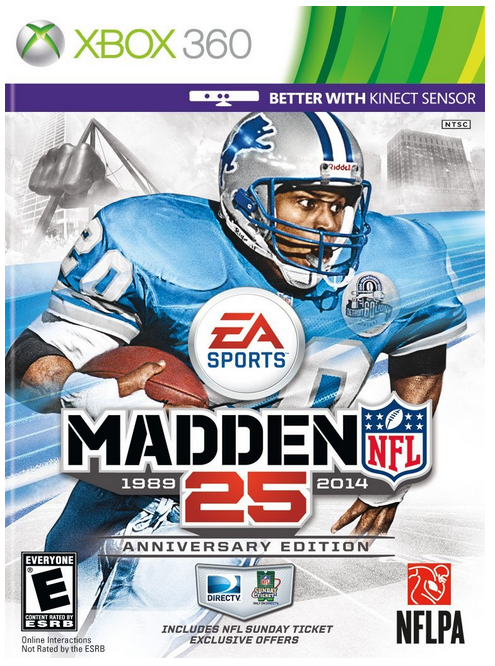
By the way, ladies? A good boyfriend is one who has no desire to accompany you and your friends on your trips to the mall.
Not literally “Stop shopping,” of course. We’re not encouraging you to sit on your money and let it fester while disengaging yourself from the marketplace. (You can find that advice, moronic as it is, on plenty of other personal finance sites. Most of them, it seems.) You’re going to need stuff, and chances are pretty good that not only has someone out there already perfected said stuff, but they’ve also achieved economies of scale and can sell it to you more cheaply and for less hassle than you can make it yourself. This goes for mouthwash, cars and everything in between.
But for God’s sake, get out of the store. Folks, Amazon has perfected the buying of just about everything but gas and groceries. Also, Amazon has forced century-old traditional retailers to step their collective game up. Yes, Amazon is also a sponsor (and the only place you can get the Kindle version of our fantastic book), but that’s beside the point. We wouldn’t write a puff piece about a retailer, not when 60 Minutes ran the definitive slobbering sycophantic segment on Amazon last Sunday. (Note to people under 80: 60 Minutes is this newsmagazine on CBS that hasn’t evolved nor progressed since it debuted 45 years ago. Wait. “CBS” is a network your grandparents watch. A “newsmagazine” is a TV show that…oh, never mind.)
Back to buying stuff online vs. in a store. 20 years from now, hopefully sooner, the idea of physical “shopping” as an activity undertaken for the purpose of increasing one’s stock of goods is going to seem as archaic as communicating primarily via telephone does to us today.
Earlier this week, the CYC team had cause to buy a dishwasher. Which, given the price and immobility of dishwashers, seems like the rare purchase that might warrant a trip to a store. Okay, fine. Our options for retail stores are limited during the time of the year when CYC decamps to its winter headquarters – the nearest Best Buy is 80 nautical miles away – so we were forced to go to Sears, the 60 Minutes of appliance outlets. We had our hopes set on this beauty from the good folks at Bosch. The model comes with SaniDry™ and EcoSense®, and every discerning buyer knows that copyrighted feature names are the hallmark of a great product.
The dishwasher is regularly $600 if you’re in the contiguous United States, $670 if you’re in the middle of the North Pacific. We’ll go with latter figure, seeing as it applies to us. HOWEVER…
10% discount for using a Sears card, now we’re down to $607. Dishwashers aren’t light, and CYC’s winter vehicle doesn’t weigh much less than the Bosch Ascenta SHE3AR72UC as it is. Ah, that’s where they screw you: the services and incidentals. Someone’s got to put it on a truck and drive it out to CYC Winter Headquarters, 30 miles from the store, and as long as they do so then they might as well install it too. $80 for the former, $10 for the latter. Including taxes, the total came out to $653.69.
Contrast this with actually going into the store, sniffing the floor models and waiting for a clerk (excuse us, “Sears Team Member”) to make the sale. Floor price, $602. Delivery and installation, $200. Ouch. To say nothing of the 60-mile, hour-plus round trip required to have the privilege of fighting for a parking space and then waiting for the previous customer to finish her interminable conversation with the overworked clerk. (“Can I wash wine glasses in this? My husband and I like to entertain on the weekends sometimes. And we like to drink wine. Sometimes we’ll have a dozen people over. Now do you know if we can put wine glasses in this model? Because sometimes they break. They’re very delicate, you know. Yeah, I’m old, I’m female, I like to blather. This is what we do. Would you like to see pictures of my grandchildren? Oh wait, this is the wrong wallet.”)
So yeah, buy as much as you can online and as little as possible via brick-and-mortar means. By advocating that, are we risking a future in which retail becomes an oligopoly, much like cell phone service and automobile sales are? After all, there are only a handful of car manufacturers, and even fewer mobile network operators. Will we eventually see a world where everyone buys from a few online giants while (to overwork an overworked metaphor) “Main Street” continues to gather dust?
No, because millions of “micro-retailers” still exist, smaller even that the Main Street mercantiles. This is a shining example of the barbell phenomenon that Nassim Nicholas Taleb examined (also available on Amazon.) To simplify, you have a few extremely large-volume players, and myriads of tiny players. The 80-20 rule, or some variant thereof. Most of our big-ticket purchases come from one of two places- billion-dollar retailers such as Sears, or…ordinary folk around the globe on eBay (and locally, on Craigslist) who just want liquidity. The latter collectively make up a huge part of the vendorship we deal with, even though each individual eBayer or Craigslist advertiser is as small as small-time gets. The guy sold us our last car was on Craigslist. The “guy” who sold us our last TV was Jeff Bezos, more or less. And the next time we visit a neighborhood clothing or record store out of anything other than curiosity might be the last.




